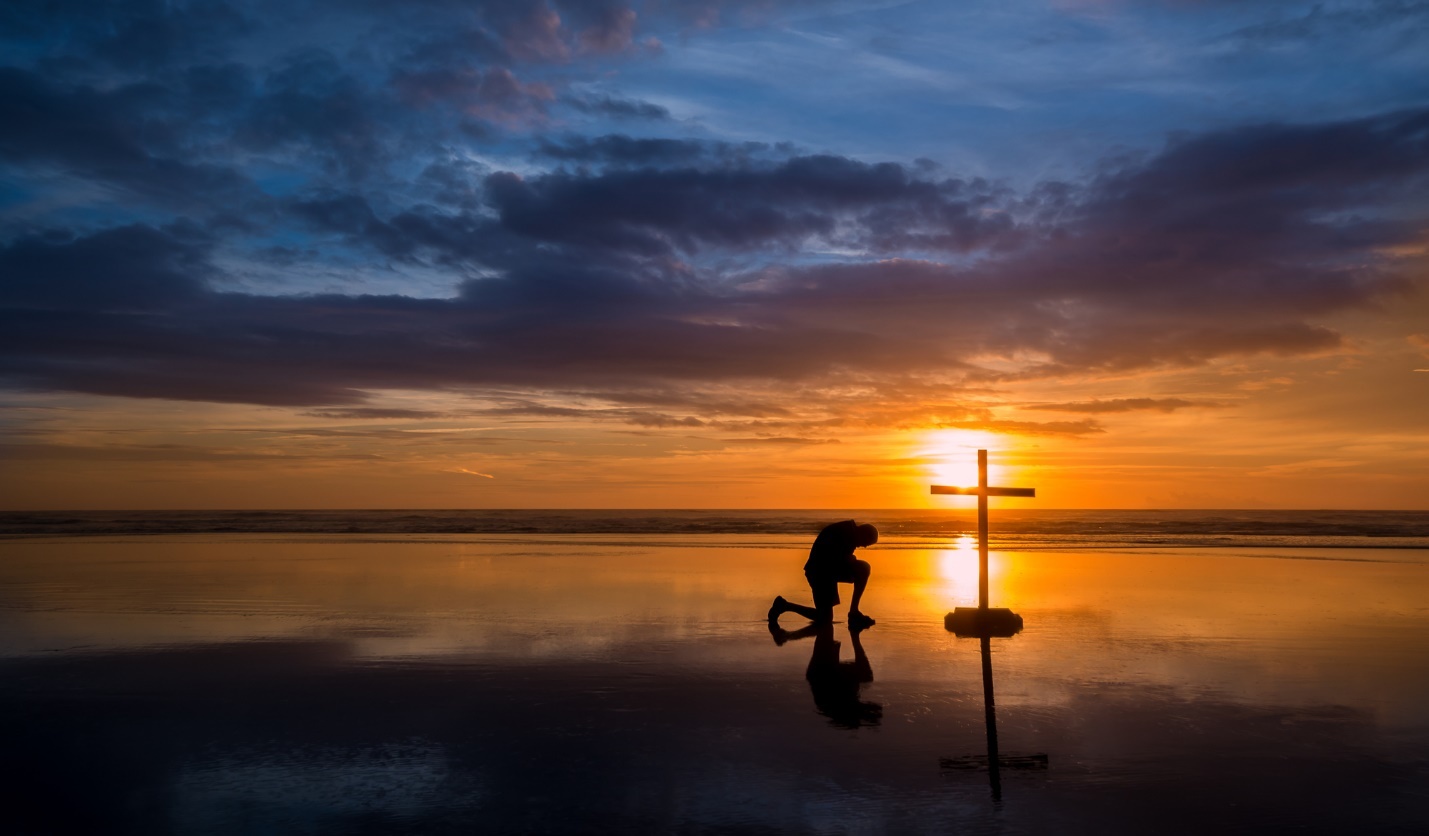BP79

In the movie Family Man, Jack and Kate are facing a difficult decision. Seemingly committed to a lifetime relationship together, Kate is anxious about Jack’s choice to fly to London for a year-long internship. She fears that the long separation might be detrimental to their relationship. Jack reassures Kate and follows through with his decision to go to London since he views the internship as critical to his future career.
The twelve-month separation, as Kate fears, drives the couple apart and they both end up spending the next thirteen years pursuing careers to the exclusion of love. Jack is clearly married to his job as a Wall Street executive and has no time for romance and relational commitment. Love seems to also have been extinguished in Kate’s heart, replaced by a cool business mindset.
Reminiscent of the divine intervention in It’s a Wonderful Life (except that this time it is not a bumbling angel sent by God, but some mysterious character named Chase who interferes with the course of Jack’s lonely life), Jack goes to sleep in his ritzy penthouse alone on Christmas Eve and then wakes up Christmas morning in a suburban bedroom next to—you guessed it—his old flame, Kate.
Jack soon discovers that he is married to Kate, and that they have two young children. He is living the life he would have had if he had not made the decision to go to London over a decade earlier. The rest of the movie chronicles Jack’s new life as he comes to love Kate and his kids more than his life as a wealthy executive who is rich in money but poverty-stricken in relationships. In the end, he pursues Kate in the real world, a jaded woman who needs some convincing to give love another try.
This Christmas flick is basically about trade-offs. Jack can choose Kate and family happiness at the cost of wealth, or he can choose the lucrative life of Wall Street (fine restaurants, tailored suits, a penthouse apartment, even a Porsche) at the cost of the woman he loves and the family they share together. He cannot have both, it seems; he must choose one or the other.
Trade-offs. Life is about trade-offs. It is wise to learn this dynamic of reality because you will experience it every day for the rest of your life. Learn the truth about trade-offs at a young age because trade-offs will most certainly determine if your future will be one of joy or one of despair.
So, how might one define a trade-off? There are many definitions. A few are: Choosing A at the expense of B. Choosing a compromise that entails giving up something to get something else. Losing one quantity to gain another. A tactical choice made with full comprehension of the disadvantages and advantages of the decision. The cost of pursuing one potential choice at the loss of the best available alternative.

Overall, it seems that there is a common theme in these definitions: a trade-off is giving up one thing for another; saying yes to one option and no to another. A person cannot have both. A choice must be made.
What are some examples of a trade-off?
- Wearing mittens instead of gloves is a classic example. If you wear mittens, you will gain warmth but at the cost of dexterity. If you wear gloves, you will have better finger dexterity but at the price of warmth. You must choose one or the other and live with the gains and the losses.
- Driving a larger, heavier car instead of a smaller car. Choosing the larger car will offer you more capacity for passengers and most likely will afford you more safety if you are involved in an accident, but you will experience the trade-off of lower fuel economy that you would have gained with the smaller car.
- If you are a couple, a trade-off is choosing to have children or not. Deciding to have children will cost you time, money, and you may have to give things up like the cabin on the lake or spontaneous travel. But the positive in having children is that you are presented with the opportunity to learn how to better love, serve, and be flexible. A gain to having children is that they may be present for you as you grow old and need increasing help from others. Just as you were there for them as children, so they might return the favor and be there for you—ideally motivated by love, not simply obligation.
- Like Jack in The Family Man, you may choose a demanding career with high potential for income over spouse and family. Sometimes, an individual is able to balance both. More often, a person must make a choice between one or the other or accept the trade-offs that go with the job.
- In the world of psycho-spiritual-relational dynamics, you may choose growth at the expense of having life easier for a season or for years. Or you may choose to shun growth because it is too difficult and painful and the journey seems to have no end to it. Said another way, you can choose a harder path of growth now and later will most likely have an easier life, or you can choose the easier path now of non-growth but later will experience the trade-off of a disappointing life that has not developed to its full potential.
- A specific example relevant to growth v. non-growth is the trade-off of turning to alcohol or drugs to make oneself feel better in a fleeting fashion instead of doing the deeper work of working through emotions, identifying and removing one’s unhealthy defenses, and learning how to love others more than oneself—to name but a few.
- As a lifestyle, you can choose to move toward people and be honest and loving or you can settle for the trade-off of moving away from people or moving against them. Both of the latter two coping styles serve to guillotine relationships while the former builds intimacy.
- You can decide (directly or indirectly) to blame others your whole life (be a victim) or you can take responsibility for your actions.
- Another trade-off is rehearsing how others have hurt you or offended you until bitterness indwells you like a cancer instead of choosing the difficult path of forgiveness.
- You can pursue the life habit of identifying and owning your sin or you can choose the trade-off of hating those who point out your sin: shoot the messenger instead of cleaning the inside of the cup.
- You can practice the trade-off of being humble and teachable or resistant and oppositional.
We can see in the above examples that trade-offs entail choosing A at the expense of B. In some cases, both A and B are good options like a vacation in the mountains or one by the ocean. Other times, A is healthy, and B is not so healthy like choosing to sit on the couch every night and eat snacks instead of setting aside time to exercise. It is one thing if you choose the couch occasionally and another if you choose it always.

One of the biggest dangers of trade-offs is what I would call accrued consequences. Men, if you play video games or surf the internet for hard or soft porn night after night, you are engaging in a trade-off that I would define as a lifestyle. If you practice such a lifestyle trade-off for months and years, you will reap a tragic relational consequence wherein you will not pursue real women but will instead extend your adolescence into your thirties and maybe even your forties.
If this is your life trajectory, deal with it now. Life is not about making gratification an idol but about learning how to love others and be a leader. Life is shorter than you think. Before you know it, you will wake up one morning and realize that the ship of relationship and family has sailed.
Accrued consequences can be witnessed in eating habits that lead to obesity and general unhealth, lack of vocational advancement due to juvenile distractions, learning how to use people but never learning how to love them, even in one’s ongoing rejection of God.
Years ago, I was talking with random people on a local college campus about their belief or lack of belief in God. Some claimed to be atheists or agnostics and so they had no interest in seeking a relationship with God. Others already knew Jesus as their Savior.
One man sticks out in my memory above all the others. After speaking at length to him about Jesus, he admitted that Jesus was a historical personality, that he believed what the Bible said was accurate, and that he wanted a personal relationship with God. However, he wanted to wait to commit himself to Jesus until he had sown his wild oats, so to speak. He wanted to pursue all the fleshly pleasures his heart lusted after—then he would seek Christ. Basically, his point was, so many women, so little time.
I’m not sure what happened to this twenty-two-year-old man, but it would be very interesting to catch up with him today and see how his trade-off worked out for him over a period of forty years. I’m assuming he could have ended up in a very detrimental place personally and used many women along the way that would have harmed their hearts.
I think it is safe to say that the ultimate trade-off involves our attitude toward God. One of the classic verses in the Bible that addresses this trade-off is found in Luke 16:13: No servant can serve two masters, for either he will hate the one and love the other, or he will be devoted to the one and despise the other. You cannot serve God and money.
No servant can serve two masters. Here is the ultimate trade-off in life. As someone once said—possibly even Bob Dylan indirectly in his song, Gotta Serve Somebody–we are made to worship something. Therefore, all of us will choose a master that we will serve whether that be money, cabins, hobby farms, a trophy woman, a man who idealizes you, success, influence, our own body, power, sex, or Jesus.

Another passage in Scripture that addresses trade-offs is Romans 1. Here is the consummate word from God on the trade-off of choosing Him or one’s personal idol.
For the wrath of God is revealed from heaven against all ungodliness and unrighteousness of men, who by their unrighteousness suppress the truth. For what can be known about God is plain to them, because God has shown it to them. For his invisible attributes, namely, his eternal power and divine nature, have been clearly perceived, ever since the creation of the world in the things that have been made. So they are without excuse. For although they knew God, they did not honor him as God or give thanks to him, but they became futile in their thinking, and their foolish hearts were darkened. Claiming to be wise, they became fools, and exchanged the glory of the immortal God for images resembling mortal man and birds and animals and creeping things.
Therefore God gave them up in the lusts of their hearts to impurity, to the dishonoring of their bodies among themselves, because they exchanged the truth about God for a lie and worshiped and served the creature rather than the Creator, who is blessed forever! Amen.
For this reason God gave them up to dishonorable passions. For their women exchanged natural relations for those that are contrary to nature; and the men likewise gave up natural relations with women and were consumed with passion for one another, men committing shameless acts with men and receiving in themselves the due penalty for their error.
And since they did not see fit to acknowledge God, God gave them up to a debased mind to do what ought not to be done. They were filled with all manner of unrighteousness, evil, covetousness, malice. They are full of envy, murder, strife, deceit, maliciousness. They are gossips, slanderers, haters of God, insolent, haughty, boastful, inventors of evil, disobedient to parents, foolish, faithless, heartless, ruthless. Though they know God’s righteous decree that those who practice such things deserve to die, they not only do them but give approval to those who practice them ~ Romans 1:18-32.
Clearly, if we exchange God for anything else—anything—the trade-off could be lethal to our joy or our eternal future. And I do not believe it is primarily about God turning His back on men and women. I think it is more about men and women turning their backs on Him and then reaping the consequences of their intentionally chosen trade-off.
Maybe just as the law of non-contradiction in our universe prevents Christianity and Islam from both being true, so the law of trade-offs prevents us from choosing God while pursuing our personal life plan (self-sufficiency, being the captain of our lives, feeding the flesh to the exclusion of the Spirit, hungering for the rush of new things and vacations and relationships instead of a personal friendship with God.)
This blogpost is not intended to be a source of shame or condemnation. Not at all. Rather, I want to close by focusing on the trade-off believers in Jesus experience when they trade-off time with Jesus for time with something else. I’m not saying that you should sit in your room praying and reading the Word all day long (some of you may be called to that).
We do need to work so that we can eat and be generous to others and use the gifts God has given us to serve others and Him. Even Paul was a tentmaker. We need rest and leisure time to unwind and recharge. We need to love and spend time with our spouses and children. We might even need to explore the world of nature God has created to see His amazing power and majesty. Worship will naturally flow from our hearts when we see the awesome works of God on display in the forest, the ocean, the mountains, and in the vastness of space.
All of these actions will glorify God as we refer our time and resources and behaviors back to an awareness of Him. It was Paul who wrote, And whatever you do, in word or deed, do everything in the name of the Lord Jesus, giving thanks to God the Father through him. . . . Whatever you do, work heartily, as for the Lord and not for men, knowing that from the Lord you will receive the inheritance as your reward ~ Colossians 3:17,23.

In some ways, it is not what we do in this world but if we do it with God-awareness and out of thankful hearts that seek to worship Him. After all, He is the one who keeps your heart beating and puts oxygen in your lungs. You would not be alive apart from Him. After all, Jesus is not only the Creator of everything; He also is the Sustainer of everything from moment to moment.
Am I saying that you should do everything for the glory of God out a sense of moral obligation? No. God is not the God of shoulds but the God of heart desires. What I am saying is to learn how to practice the presence of God (His character with its love, grace, majesty, faithfulness, righteousness, holiness, eternality, authority, glory, dominion) so that your focus on who He is will become your practice which will then naturally lead to a desire to serve Him in your thoughts, actions, and attitudes.
Brother Lawrence talks about practicing the presence of God in his book, The Practice of the Presence of God. I view his book as all about trade-offs. He writes:
“I cannot imagine how religious persons can live satisfied without the practice of the presence of GOD. For my part I keep myself retired with Him in the depth of centre of my soul as much as I can; and while I am so with Him I fear nothing; but the least turning from Him is insupportable.”
“The difficulties of life do not have to be unbearable. It is the way we look at them – through faith or unbelief – that makes them seem so. We must be convinced that our Father is full of love for us and that He only permits trials to come our way for our own good.
Let us occupy ourselves entirely in knowing God. The more we know Him, the more we will desire to know Him. As love increases with knowledge, the more we know God, the more we will truly love Him. We will learn to love Him equally in times of distress or in times of great joy.”
“That we should establish ourselves in a sense of GOD’s Presence, by continually conversing with Him. That it was a shameful thing to quit His conversation, to think of trifles and fooleries.”
One of the most tragic trade-offs for the believer in Jesus is practicing the presence of things: choosing something instead of someone, God Himself. Again, the point is not that you should practice God’s presence as a duty. No, as Lawrence himself said it, The more we know Him, the more we will desire to know Him.
Another way to say it is that the secret of the Christian life is to learn how to practice being with Jesus instead of practicing and rehearsing the fleeting things of this world. We will love what we devote time to and what we devote time to reveals what we love. How high does Jesus rank on our Practicing Presence List?

We began this blogpost with the story of Jack and his major trade-off. He chose vocational success and wealth over his future wife, Kate. Like Scrooge in the Christmas Carol, he decided to love wealth and career advancement over another person. Like Scrooge and his ghosts, Jack encountered an apparently random character ironically named Cash who magically inserted Jack into the life he would have had if he would have chosen love and Kate over success and money.
Magic and fantasy. There is no hope in either of those to undo our selfish trade-offs. But there is another way, another person, actually, who is the reason for the season. He is the one who offers us the best trade-off of all, namely, life with Him forever instead of life apart from Him pursuing our own passions and idols.
All of us face trade-offs, some big, some small. Of course, the one of greatest significant is the one that will impact our lives in this world but also in the next.
Trade-offs can, in the end, be damnable–extremely bad or unpleasant in a natural consequences kind of way or even worthy of divine condemnation if we use others and love things instead of someone.
So, be acutely aware of the law of trade-offs. Sometimes in life we can do both things—we can have our cake and eat it, too. Often, we must choose one or the other.
Choose wisely. You cannot serve two masters. (Do you remember cognitive dissonance?) You cannot love both God/others and money. Strive to say yes to the things that will bring forgiveness, peace, joy, love, and a growing obedience to God so that you will not reap the potential trade-offs of bitterness, soul dis-ease, fleeting happiness, and a heart that increasingly is set against God.
Be aware of all the trade-offs in your life because their impact will accrue. Live life with your eyes wide open.

Now therefore fear the LORD and serve him in sincerity and in faithfulness. Put away the gods that your fathers served beyond the River and in Egypt, and serve the LORD. And if it is evil in your eyes to serve the LORD, choose this day whom you will serve, whether the gods your fathers served in the region beyond the River, or the gods of the Amorites in whose land you dwell. But as for me and my house, we will serve the LORD ~ Joshua 24:14-15
And he answered, “You shall love the Lord your God with all your heart and with all your soul and with all your strength and with all your mind, and your neighbor as yourself ~ Luke 10:27
